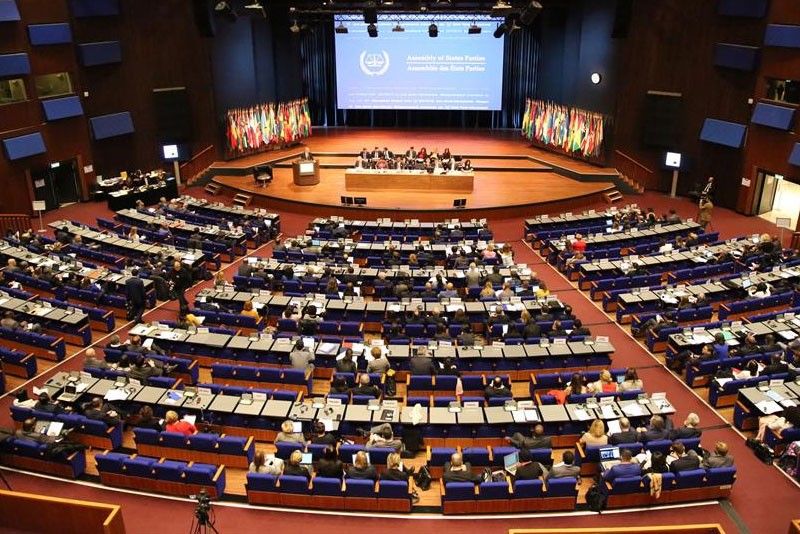Philippines disengages itself from ICC deliberations

MANILA, Philippines — The Philippines has disengaged itself from the deliberations of the state parties to the International Criminal Court (ICC), months before the country’s withdrawal to the body takes effect in March.
Philippine ambassador to the Netherlands Jaime Victor Ledda delivered the country’s statement during the assembly of state parties to the Rome Statute at The Hague on Thursday (early Friday in Manila).
“The Philippines’ decision to withdraw from the Rome Statute of the ICC is our principled stand against those who politicize human rights, even as our country’s independent and well-functioning organs and agencies continue to exercise jurisdiction over complaints, issues, problems and concerns arising from its efforts to protect its people,” read the statement.
“In view of our withdrawal… the Philippines disengages itself from the deliberations on the Omnibus Resolution and from any consensus that may be reached in the course of this Assembly,” it added.
The Philippines will cease to be a party of the Rome Statute, which created the ICC, on March 17, one year after the country informed the United Nations of its decision.
The Duterte administration moved for the withdrawal from the international body after ICC prosecutor Fatou Bensouda initiated a preliminary examination of the alleged crimes committed in relation to the government’s deadly campaign against illegal drugs.
Despite the withdrawal, Letta said the Philippines will continue to affirm its commitment to fight impunity for atrocity crimes, stressing that the country has national legislation punishing such crimes.
“The Philippines is guided by the rule of law embodied in its Constitution, which also enshrines the country’s long-standing tradition and commitment to human rights,” read the country statement.
“Its democratic institutions, including the judiciary, are fully functioning, and government agencies are working together to address the drug problem, from community-level engagements to rehabilitation, from law enforcement to investigation and prosecution,” it added.
Without citing specific cases, the Philippines said developments in the country demonstrate that justice and the rule of law prevail.
Malacañang earlier claimed the recent conviction of the police officers tagged in the killing of 17-year old Kian Loyd delos Santos prove that the justice system is functioning and that there is no need for the ICC to intervene.
Critics, however, said the conviction could bolster the case as it proves the existence of extrajudicial killings in the country.
Commission on Human Rights (CHR) chairman Chito Gascon stressed the ICC will still have jurisdiction over the alleged crimes it is currently examining as these supposedly happened before the Philippines notified the court of its withdrawal.
“The ICC will continue to have jurisdiction over events that occurred in our territory that may fall under the crimes within their jurisdiction (i.e. crimes against humanity, etc.) between 2011 and March 2019,” he said.
“This covers the events while President Duterte was mayor in Davao up to his election as President and the present moment. So perpetrators with direct participation and leaders who enabled these perpetrators may still be eventually charged at the ICC,” Gascon said.
The Philippines joined the ICC in November 2011.
Since Duterte took office in 2016, thousands of suspected drug offenders have been killed by state forces acting on orders of the President’s war against drugs.
Bensouda said extrajudicial killings could be prosecuted by the ICC if they are “committed as part of a widespread or systematic attack against a civilian population.”
The ICC, established under the 1998 Rome Statute, is a court of last resort. It only intervenes if a country is found to be unwilling or unable to prosecute crimes under its statute, including war crimes, crimes against humanity and genocide.
- Latest
- Trending































